 Libri di Frank Thomas su Unilibro.it) Libri di Frank Thomas su Unilibro.it)
|
|
1998 |
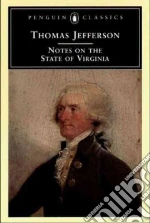 Title :
Notes on the State of Virginia
Title :
Notes on the State of VirginiaAuthor: Jefferson Thomas, Shuffelton Frank (EDT) Publisher: Penguin Classics Jefferson’s chronicle of the natural, social, and political history of Virginia is at once a scientific discourse, an attempt to define America, and a brilliant examination of the idea of freedom. € 15,20
|
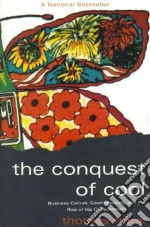 Title :
The Conquest of Cool
Title :
The Conquest of CoolAuthor: Frank Thomas Publisher: Univ of Chicago Pr While the youth counterculture remains the most evocative and best-remembered symbol of the cultural ferment of the 1960s, the revolution that shook American business during those boom years has gone largely unremarked. In this fascinating and revealing study, Thomas Frank shows how the youthful revolutionaries were joined—and even anticipated —by such unlikely allies as the advertising industry and the men's clothing business. '[Thomas Frank is] perhaps the most provocative young cultural critic of the moment.'—Gerald Marzorati, New York Times Book Review 'An indispensable survival guide for any modern consumer.'—Publishers Weekly, starred review 'Frank makes an ironclad case not only that the advertising industry cunningly turned the countercultural rhetoric of revolution into a rallying cry to buy more stuff, but that the process itself actually predated any actual counterculture to exploit.'—Geoff Pevere, Toronto Globe and Mail 'The Conquest of Cool helps us understand why, throughout the last third of the twentieth century, Americans have increasingly confused gentility with conformity, irony with protest, and an extended middle finger with a populist manifesto. . . . His voice is an exciting addition to the soporific public discourse of the late twentieth century.'—T. J. Jackson Lears, In These Times 'An invaluable argument for anyone who has ever scoffed at hand-me-down counterculture from the '60s. A spirited and exhaustive analysis of the era's advertising.'—Brad Wieners, Wired Magazine 'Tom Frank is . . . not only old-fashioned, he's anti-fashion, with a place in his heart for that ultimate social faux pas, leftist politics.'—Roger Trilling, Details € 17,00
|
|
1997 |
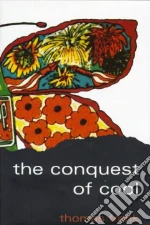 Title :
The Conquest of Cool
Title :
The Conquest of CoolAuthor: Frank Thomas Publisher: Univ of Chicago Pr While the youth counterculture remains the most evocative and best-remembered symbol of the cultural ferment of the 1960s, the revolution that shook American business during those boom years has gone largely unremarked. In this fascinating and revealing study, Thomas Frank shows how the youthful revolutionaries were joined--and even anticipated --by such unlikely allies as the advertising industry and the men's clothing business. '[Thomas Frank is] perhaps the most provocative young cultural critic of the moment.'--Gerald Marzorati, New York Times Book Review 'An indispensable survival guide for any modern consumer.'--Publishers Weekly, starred review 'Frank makes an ironclad case not only that the advertising industry cunningly turned the countercultural rhetoric of revolution into a rallying cry to buy more stuff, but that the process itself actually predated any actual counterculture to exploit.'--Geoff Pevere, Toronto Globe and Mail 'The Conquest of Cool helps us understand why, throughout the last third of the twentieth century, Americans have increasingly confused gentility with conformity, irony with protest, and an extended middle finger with a populist manifesto. . . . His voice is an exciting addition to the soporific public discourse of the late twentieth century.'--T. J. Jackson Lears, In These Times 'An invaluable argument for anyone who has ever scoffed at hand-me-down counterculture from the '60s. A spirited and exhaustive analysis of the era's advertising.'--Brad Wieners, Wired Magazine 'Tom Frank is . . . not only old-fashioned, he's anti-fashion, with a place in his heart for that ultimate social faux pas, leftist politics.'--Roger Trilling, Details € 20,50
|
|
|
1995 |
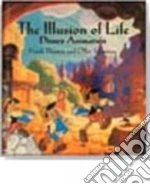 Title :
The Illusion of Life
Title :
The Illusion of LifeAuthor: Thomas Frank, Johnston Ollie Publisher: Disney Editions An out-of-print collector's item since 1986, the definitive account of the development of Disney animation explains what made Disney's style unique and features original sketches and drawings revealing the origins of Mickey and the rest. National ad/promo. € 71,80
|
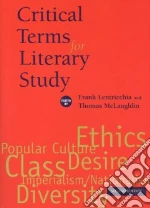 Title :
Critical Terms for Literary Study
Title :
Critical Terms for Literary StudyAuthor: McLaughlin Thomas, Lentricchia Frank Publisher: Univ of Chicago Pr Since its publication in 1990, Critical Terms for Literary Study has become a landmark introduction to the work of literary theory--giving tens of thousands of students an unparalleled encounter with what it means to do theory and criticism. Significantly expanded, this new edition features six new chapters that confront, in different ways, the growing understanding of literary works as cultural practices. These six new chapters are 'Popular Culture,' 'Diversity,' 'Imperialism/Nationalism,' 'Desire,' 'Ethics,' and 'Class,' by John Fiske, Louis Menand, Seamus Deane, Judith Butler, Geoffrey Galt Harpham, and Daniel T. O'Hara, respectively. Each new essay adopts the approach that has won this book such widespread acclaim: each provides a concise history of a literary term, critically explores the issues and questions the term raises, and then puts theory into practice by showing the reading strategies the term permits. Exploring the concepts that shape the way we read, the essays combine to provide an extraordinary introduction to the work of literature and literary study, as the nation's most distinguished scholars put the tools of critical practice vividly to use. € 31,90
|
|
1994 |
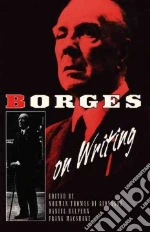 Title :
Borges on Writing
Title :
Borges on WritingAuthor: Borges Jorge Luis, Di Giovanni Norman Thomas, Halpern Daniel, MacShane Frank Publisher: Perennial In 1971, Jorge Luis Borges was invited to preside over a series of seminars on his writing at Columbia University. This book is a record of those seminars, which took the form of informal discussions between Borges, Norman Thomas di Giovanni--his editor and translator, Frank MacShane--then head of the writing program at Columbia, and the students. Borges's prose, poetry, and translations are handled separately and the book is divided accordingly. The prose seminar is based on a line-by-line discussion of one of Borges's most distinctive stories, 'The End of the Duel.' Borges explains how he wrote the story, his use of local knowledge, and his characteristic method of relating violent events in a precise and ironic way. This close analysis of his methods produces some illuminating observations on the role of the writer and the function of literature. The poetry section begins with some general remarks by Borges on the need for form and structure and moves into a revealing analysis of four of his poems. The final section, on translation, is an exciting discussion of how the art and culture of one country can be 'translated' into the language of another. This book is a tribute to the brilliant craftsmanship of one of South America's--indeed, the world's--most distinguished writers and provides valuable insight into his inspiration and his method. € 11,90
|
|
|
1991 |
 Title :
How to Write the Story of Your Life
Title :
How to Write the Story of Your LifeAuthor: Frank P Thomas Publisher: WRITER'S DIGEST Shows anybody how to mine the depths of their experinece to write an engaging and saleable memoir. € 13,70
|
|
|
1983 |
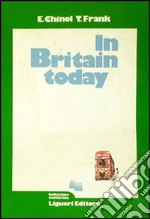 Title :
In Britain today
Title :
In Britain todayAuthor: Chinol Elio - Frank Thomas Publisher: Liguori € 8,99
|
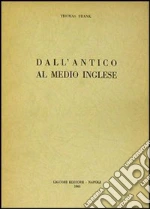 Title :
Dall'antico al medio inglese
Title :
Dall'antico al medio ingleseAuthor: Frank Thomas Publisher: Liguori € 16,50
|
|
1982 |
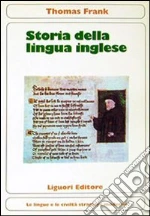 Title :
Storia della lingua inglese
Title :
Storia della lingua ingleseAuthor: Frank Thomas Publisher: Liguori € 42,99
Scontato: € 40,84
|
|
|
1978 |
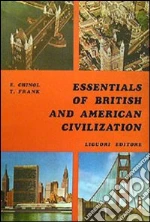 Title :
Essential of British and American civilization
Title :
Essential of British and American civilizationAuthor: Chinol Elio; Frank Thomas Publisher: Liguori € 6,50
|
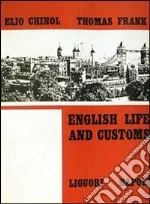 Title :
English life and customs
Title :
English life and customsAuthor: Chinol Elio; Frank Thomas Publisher: Liguori € 7,49
|
|
1962 |
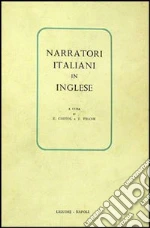 Title :
Narratori italiani in inglese
Title :
Narratori italiani in ingleseAuthor: Chinol Elio; Frank Thomas Publisher: Liguori € 32,49
|
|
|
Data Pubblicazione 'Non disponibile' |
 Title :
Choosing to Live
Title :
Choosing to LiveAuthor: Ellis Thomas E., Newman Cory Frank Publisher: Lightning Source Inc Discusses the decision to commit suicide, presents strategies to overcome the crisis and get help, and offers a guide for concerned family members and friends € 29,00
|

|

|

|